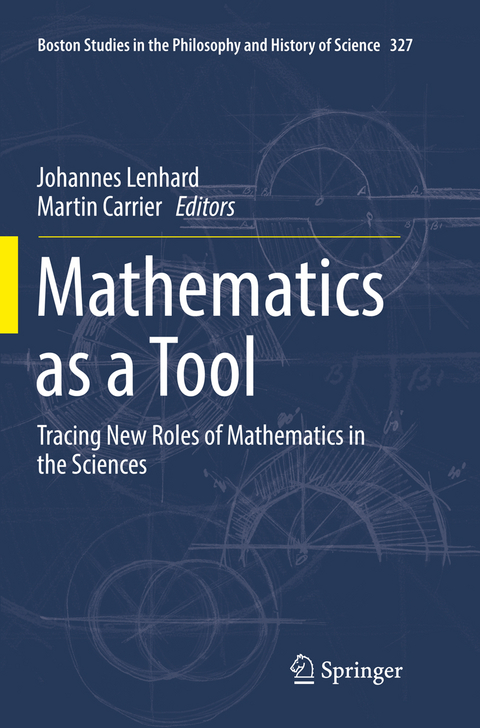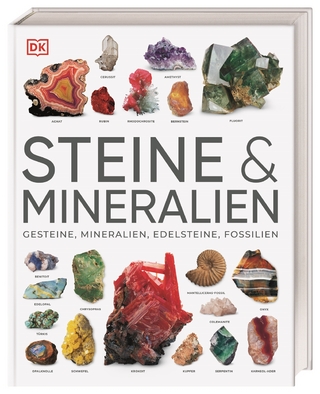
Mathematics as a Tool
Springer International Publishing (Verlag)
978-3-319-85400-7 (ISBN)
This book puts forward a new role for mathematics in the natural sciences. In the traditional understanding, a strong viewpoint is advocated, on the one hand, according to which mathematics is used for truthfully expressing laws of nature and thus for rendering the rational structure of the world. In a weaker understanding, many deny that these fundamental laws are of an essentially mathematical character, and suggest that mathematics is merely a convenient tool for systematizing observational knowledge.
The position developed in this volume combines features of both the strong and the weak viewpoint. In accordance with the former, mathematics is assigned an active and even shaping role in the sciences, but at the same time, employing mathematics as a tool is taken to be independent from the possible mathematical structure of the objects under consideration. Hence the tool perspective is contextual rather than ontological. Furthermore, tool-use has to respect conditions like suitability, efficacy, optimality, and others. There is a spectrum of means that will normally differ in how well they serve particular purposes. The tool perspective underlines the inevitably provisional validity of mathematics: any tool can be adjusted, improved, or lose its adequacy upon changing practical conditions.
Johannes Lenhard does research in philosophy of science with a particular focus on the history and philosophy of mathematics and statistics. During the last years his research concentrated on various aspects of computer and simulation modeling, culminating in his monograph "Calculated Surprises" (in German). Currently, he is senior researcher at the philosophy department of Bielefeld University, Germany. He has held a visiting associate professorship in history at the University of South Carolina, Columbia, long after he had received his doctoral degree in mathematics from the University of Frankfurt, Germany. Martin Carrier is a professor at the Department of Philosophy, Bielefeld University. He has worked on five different fields in the philosophy of science. History of Early Modern Physical Theory, Theory Change: Problems of Methodological Comparison and Confirmation Theory, Conceptual Relations among Theoretical Systems: cognition, neuronal states, behavior, incommensurability, theory-laden tests, Space-Time Philosophy and Methodological Problems of Applied Research.
Chapter 1. Introduction (Johannes Lenhard).- Part 1. Organizing Science.- Chapter 2. Rational and Empirical Cultures of Prediction (Ann Johnson).- Chapter 3. Mathematization in Synthetic Biology: Analogies, Templates, and Fictions (Tarja Knuuttila).- Chapter 4. Trigonometry, Construction by Straightedge and Compass, and the applied mathematics of the Almagest (Ido Yavetz).- Chapter 5. Shaping Mathematics as a Tool: The Search for a Mathematical Model of Quasi-Crystals (Henrik Kragh Sørensen).- Part 2. Conceptual Re-Evaluation.- Chapter 6. Boon and Bane: On the Role of Adjustable Parameters in Simulation Models (Hans Hasse).- Chapter 7. Systems Biology in the Light of Uncertainty: The Limits of Computation (Miles MacLeod).- Chapter 8. The Vindication of Computer Simulations (Nicolas Fillion).- Chapter 9. Empirical Bayes as a Tool (Anouk Barberousse).- Part 3. Reflections on the Tool Character.- Chapter 10.On the Epistemic and Social Foundations of Mathematics as Tool and Instrument in Observatories, 1793-1846 (David Aubin).- Chapter 11. Approaching Reality by Idealization: How Fluid Resistance Was Studied By Ideal Flow Theory (Michael Eckert).- Chapter 12. Idealizations in Empirical Modeling (Julie Jebeile).- Chapter 13. Forcing Optimality and Brandt's Principle (Domenio Napoletani).- Chapter 14. Object Oriented Methods vs. Data Analysis: Is this the Right Alternative? (Jürgen Jost).
"The book will be of interest for the more philosophically inclined mathematician or, more general, scientist, and for science-oriented philosophers." (H. Muthsam, Monatshefte für Mathematik, Vol. 95 (3), July, 2021)
| Erscheinungsdatum | 05.03.2022 |
|---|---|
| Reihe/Serie | Boston Studies in the Philosophy and History of Science |
| Zusatzinfo | X, 286 p. 28 illus., 10 illus. in color. |
| Verlagsort | Cham |
| Sprache | englisch |
| Maße | 155 x 235 mm |
| Gewicht | 615 g |
| Themenwelt | Sachbuch/Ratgeber ► Natur / Technik ► Natur / Ökologie |
| Naturwissenschaften ► Biologie ► Ökologie / Naturschutz | |
| Naturwissenschaften ► Geowissenschaften | |
| Schlagworte | Computer Modelling • Data driven Research • Mathematical Engineering • Mathematical idealization • Mathematical instrument • mathematical practice • mathematical representation • Mathematical Tuning • Mathematics mediator • Mathematization • scientific practice • Simulation |
| ISBN-10 | 3-319-85400-3 / 3319854003 |
| ISBN-13 | 978-3-319-85400-7 / 9783319854007 |
| Zustand | Neuware |
| Haben Sie eine Frage zum Produkt? |
aus dem Bereich


